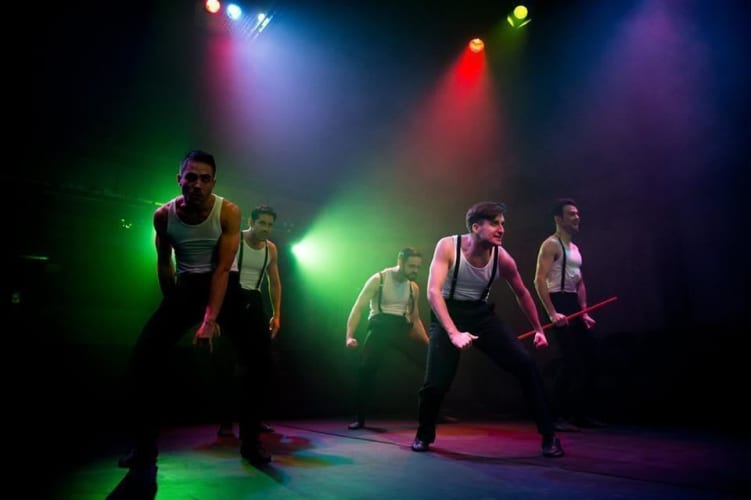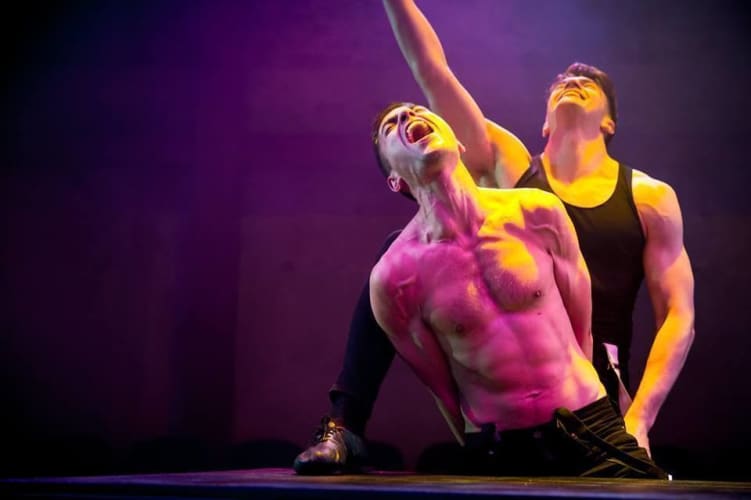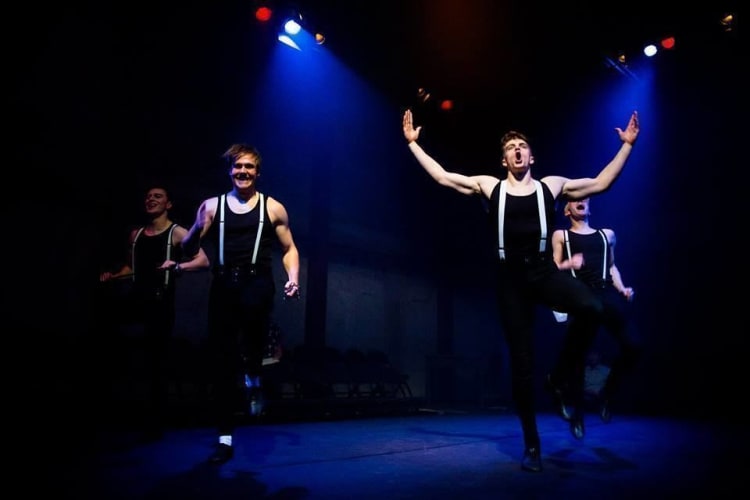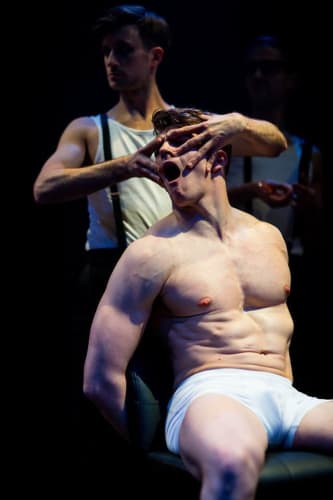Action to the Word’s production of their version of Anthony Burgess’s dystopian drama was first seen on the Edinburgh Fringe in 2011 and then toured internationally has been revived to mark the centenary of Burgess’s birth. This dramatisation of his 1962 novel is one that Burgess’s himself made and published in 1987, though here it has been cut to play a compact 90 minutes straight through without an interval.
This staging at Finsbury Park is in-the-round and that proximity has given extra frisson to an already very physical production. The story of Beethoven-loving teenager Alexander DeLarge and his gang of droogs who leave a trail of violence, rape and burglary behind them is widely known from Stanley Kubrick’s film as well as the book. When rebellion in the ranks leads to Alex being arrested, he’s put on an aversion therapy programme which makes him feel physically ill not just at violence but at hearing the music of his beloved Ludwig van.
The treatment may have tamed him but it has taken away free will. That’s posed as a moral problem but then a suicide attempt appears to undo the therapy and his violent attitudes return until, following the book’s original final chapter (omitted from the film which was based on an the first American edition which cut it), Alex becomes more moderate and thinks of settling down as a responsible member of society.
Director Alexandra Spencer-Jones stays true to the outline of the story and keeps the invented “Nadstat” language of the novel which, along with pared-down dialogue, could make it difficult to follow if it were not so boldly told through movement that often turns into dance.
It is an all-male cast clad mainly in singlets, black trousers and braces: female roles are identified by token frilly skirts or high heels and given simpering portrayals. There is an emphasis on sweaty pecs and bulging muscles. Jonno Davies, returning to the role he played in Edinburgh, is a strong physical presence as Alex leading the style of the production with strong movement and gestures sometimes emphasised by slow movement. Even his mouth movements seem to be taking great care to make his voice more sonorous.
Alongside Davies’s display of masculinity, some of his fellow droogs are almost effeminately balletic and there sometimes seems to be a strong homosexual element to the action with Alex snogging and groping his mates as well as women.
A male anal rape with a broken bottle sets the pattern for explicit violence but, however visceral on the surface, you know that glass (left shattered on the stage cloth) was a prop sugar bottle and you find yourself admiring the skill with which the company are executing the acrobatics and Hannah Le’s choreography rather than being shocked by the action or feeling anything either for either Alex or the victims of his violence.
Perhaps those less familiar with the story and coming to it in the theatre for the first time may find it more cathartic. I applaud the cast for their skill, timing and vigour. Luke Baversock, Sebastian Charles and Tom Whitelock as droogs, Will Stokes as rival Billy Boy, Simon Cotton as writer Frank Alexander, Damien Hasson as schoolteacher and morally-troubled chaplain, Philip Honeywell as experimenter Dr Branom and James Smoker as Minister of Justice all put on a good show and play other roles besides.
It’s great to watch but this feels like the bare bones of the story, a trailer of highlights that doesn’t quite hit home.



